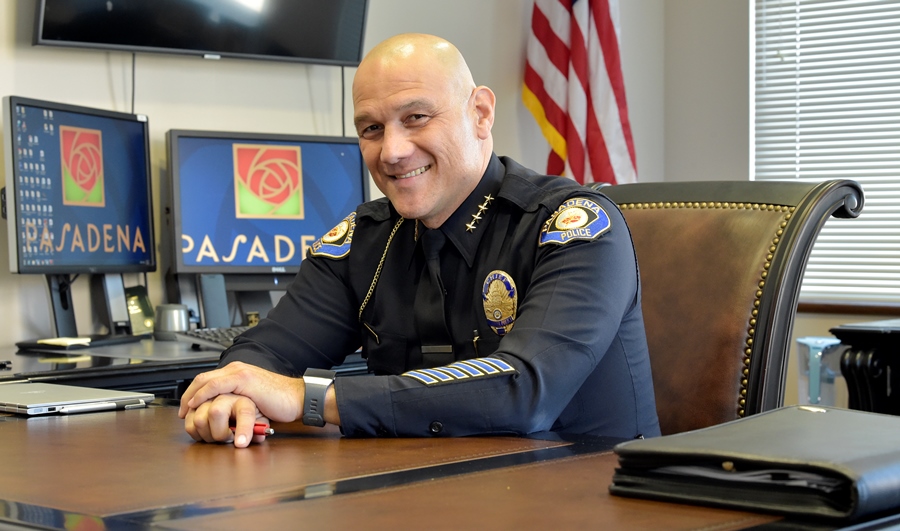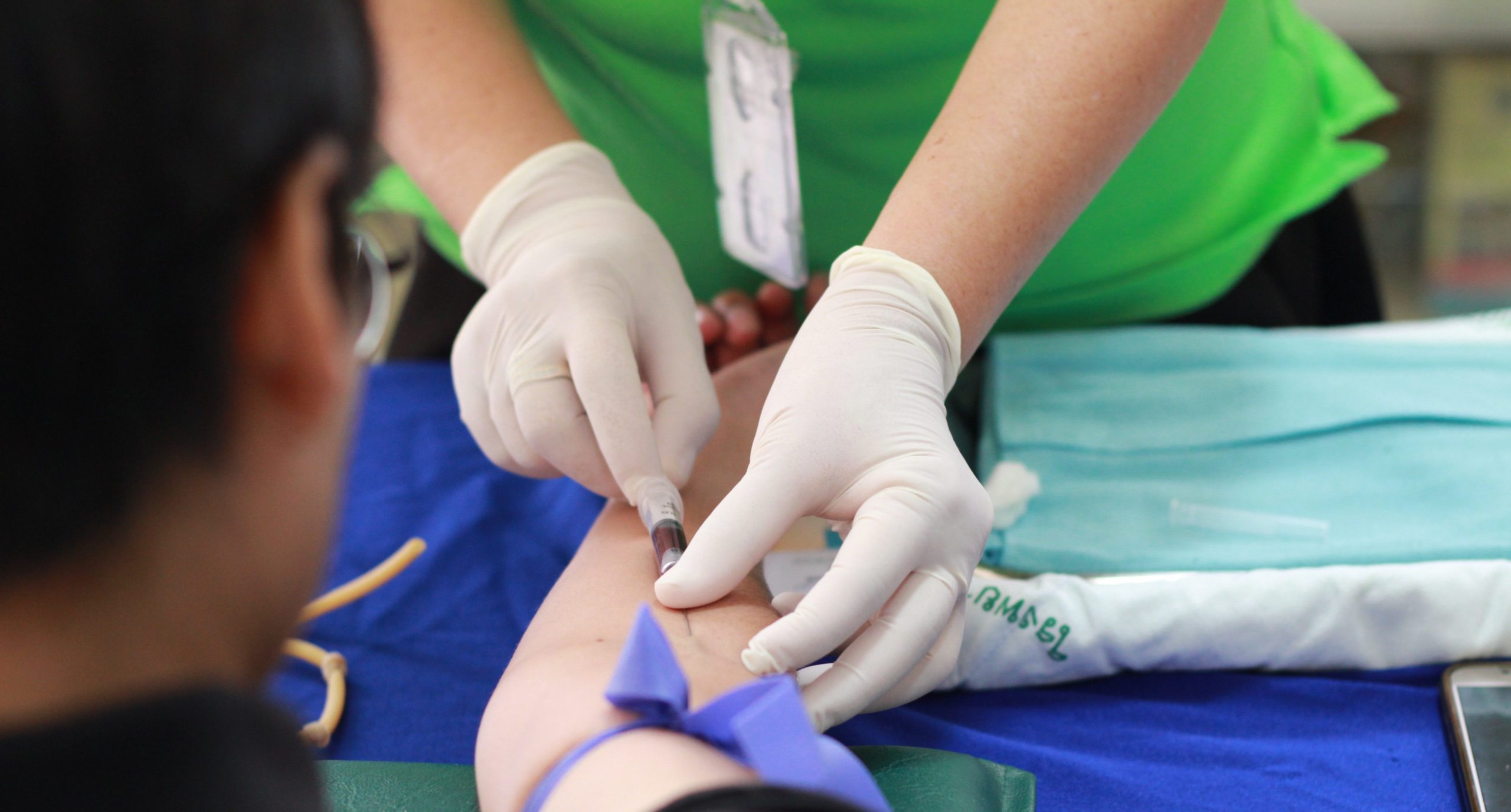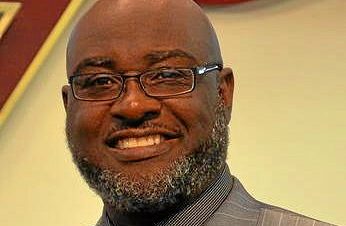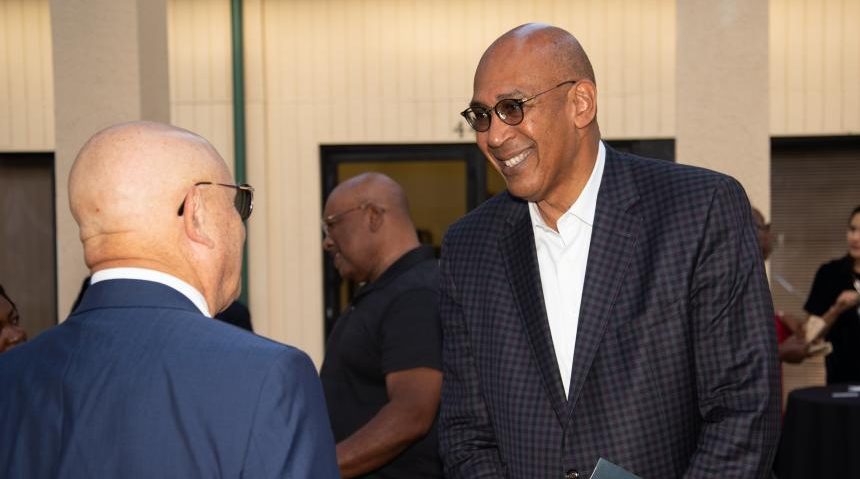
John Perez – the interview
By Terry Miller
There are rumors flying around the city suggesting that there may be as many as 52, or more, contenders for the position of Pasadena’s Chief of Police. However, few of us actually know the exact number vying for the coveted and extremely demanding position of heading the Police department.
We have only been able to confirm two local applicants vying for the highly sought after position. We profiled Phlunte’ Riddle, a retired lieutenant from the Pasadena Police Department, last week. This week, we turn our attention to the Interim Chief of Police John E. Perez who was one of the first to publically throw his hat into the ring of qualified candidates.
The process takes a considerable amount of time and the recruiting firm interviews will start soon with the final short list to be handed to Pasadena’s City Manager Steve Mermell. There may be a decision by December.
Perez was born in Los Angeles and has been with the Pasadena Police Department since 1985. He is married and has 10-year-old twin boys – fraternal – with whom he loves spending time playing ball and coaching their friends. A strong father figure garners respect at an early age, Perez points out.
Starting his storied career as a police cadet, Perez worked various assignments throughout the organization which included patrol, community relations, internal affairs, special enforcement section, SWAT, special investigations unit, and the counter terrorism unit.
This humble, personable, and highly decorated interim chief of police is dedicated to the community with numerous commissions and committees that help him educate the community at large through his unique experience as a Pasadena police officer.
“It’s evolution of critical thinking,” according to the interim chief. Not every great idea has worked but Perez points out that we learn more from our mistakes and that ultimately strengthens our moral fiber.
There are three main areas of importance in police work, according to Perez:
- Administrative training policy.
- Operations with four divisions and 14 sections.
- Community engagement.
Highlighting these areas, Perez points out the importance of his “lessons of experience” and the vital role the department must play in transparency, open and honest community dialogue and the all-important staff retention.
When the department hires talented officers in Pasadena, Perez wants to keep those officers in the city and not move on to another city “where the grass may be greener.”
Perez points out that there is a “national voice on policing” in which three elements are critical: oversight, use of force and community engagement.
We asked Perez about the growing issue of homelessness and the special challenges it poses officers on a daily basis. “We have approximately 700 homeless individuals in Pasadena, according to the most recent count,” Interim Chief Perez said. “We usually contact about 50 people a day and try and help where we can. There are tremendous local resources available, unfortunately not everyone is willing to get the help they need.”
While overall crime is reduced within city limits, homeless growth “will not go away anytime soon,” Perez concedes. Officers have to deal with a growing problem, perhaps due in part to the Gold Line making more cities easily accessible. This combined with people sleeping outside businesses, and basic sanitary conditions, has made officers learn to be a conduit between business owners and the homeless; and at the same time hopefully help the homeless community with education. Helping those individuals know there are people in the City of Pasadena who really do care and want to help is a large task but Pasadena officers are equipped with extraordinary knowledge and resources to help those who need it most.
With 239 sworn officers in the department, Perez says the department is doing well and getting stronger each day. “There has been a 30 percent reduction in police officers’ use of force in 2018,” Perez proudly states.
The proactive police techniques and the community’s understanding of what the police department offers helps a community like Pasadena feel more confident and ultimately we all benefit, Perez said.
For two years now, Pasadena police have been using BWC’s (body worn cameras) and this has had a significant and strategic impact on not only the community trust but within the department. A better understanding of police techniques used on a daily basis can be of vital importance in creating a more transparent, strong, and vibrant police force.
That combined with the department’s ability to release BWC footage within 45 days of an incident helps garner trust and respect. Additionally, Perez says he’s particularly proud of the six officers who are assigned to the bike team.
Perez is quick to point out that Pasadena is one of the finest and best-trained Police departments in the United States with exceptional candidates vying for the position of chief. “I’m focused and committed to the community and this department” Perez said emphatically.
“Whoever becomes the next chief of police, I know we’ll have a stronger team and will be able to accomplish great things together.” Reiterating the importance of education, Perez points out, again, that “evolution of critical thinking” will help the department and community gain strength and be able to foster a safer community.






